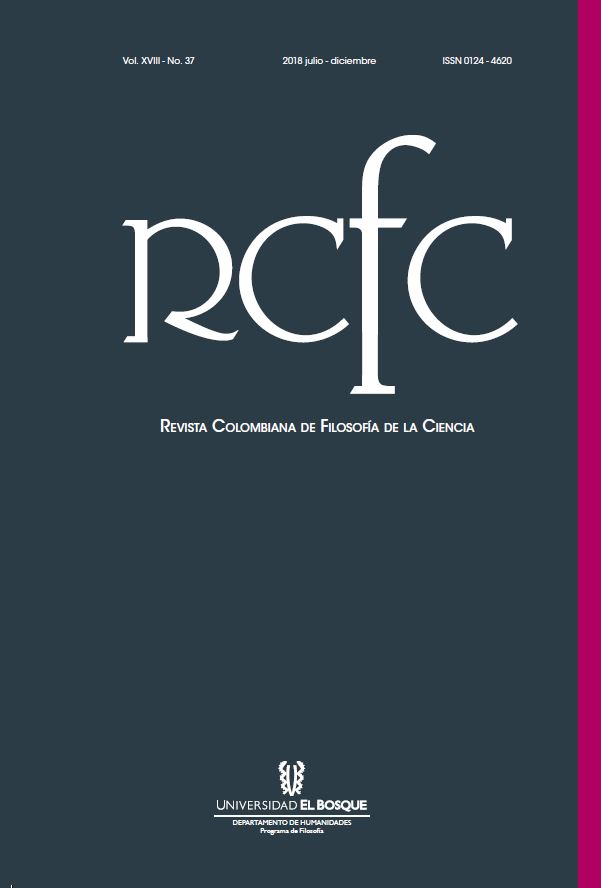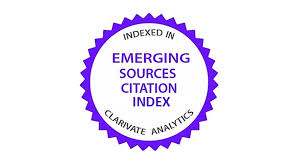Our parents’ (historiographical) sins Or how a virtuous relationship became vicious… and how to redeem it
Or how a virtuous relationship became vicious… and how to redeem it
DOI:
https://doi.org/10.18270/rcfc.v18i37.2567Keywords:
History of Science, Philosophy of Science, Kitcher, Laudan, Kuhn, Dynamic EpistemologyAbstract
In this paper I present a diagnosis of a problem and a solution proposal (currently in progress). This problem revolves around how we should understand the relationship between history of science and philosophy of science in such a way that both disciplines achieve an adequate and balanced integration. My diagnosis is based on four analyses that Philip Kitcher, Larry and Rachel Laudan and Thomas Kuhn have made over the last two decades. My diagnosis takes the basic ideas common to these four authors and adds seven points related to the logic of Dewey and some ideas of Peirce. My proposal is that a more harmonious and potentially fertile integration between history of science and philosophy of science lies in conceiving such integration as a dynamic epistemology of four epistemic fields (emergence, preservation, modification, change) about multiple cognitive phases (questions, data, approach to problems, beliefs, reasoning, results) characteristic of scientific research practices. This dynamic epistemology must account not only for the justification of epistemic areas and cognitive phases, but also for their relevance.
Downloads
References
Brown, M. J. “John Dewey's Logic of Science”. HOPOS: The Journal of the International Society for the History of Philosophy of Science 2.2 (2012): 258-306.
Dewey, J. Logic: Theory of Inquiry (1938). EE.UU: Southern Illinois University Press, 2008.
Domski, M. y M. Dickson (Eds.). Discourse on a New Method. Reinvigorating the Marriage of History and Philosophy of Science. Chicago: Open Court, 2010.
Kitcher, P. Epistemology without History is Blind. Erkenntnis 75 (2011): 505-524.
________. “The Importance of Dewey for Philosophy (and for Much Else Besides)”. Preludes to pragmatism: Toward a Reconstruction of Philosophy. Oxford: Oxford University Press, 2012.
Kunh. T.S. The Trouble with the Historical Philosophy of Science. Cambridge, Mass.: Dept. of the History of Science, Harvard Univ., 1991.
________. T.S. The Road since Structure. Chicago: The University of Chicago Press, 2000.
________. La Estructura de las Revoluciones Científicas. México: Fondo de Cultura Económica, 2006.
Hintikka, J. “What is Abduction? The Fundamental Problem of Contemporary Epistemology”. Transactions of the Charles S. Peirce Society 34.3 (1998): 503-533.
________. Socratic Epistemology. Explorations of Knowledge-Seeking by Questioning. Cambridge: Cambridge University Press, 2007.
Laudan, L. (2009). “Sobre una historia presentista de (casi) todo”. Filosofía natural y lenguaje: homenaje a José Antonio Robles. Comps. A. Velázquez, y L. Toledo. México: IIFs/UNAM.
Laudan, L., y Laudan, R. The Re-emergence of Hyphenated History-and-Philosophy-of-Science and the Testing of Theories of Scientific Change. Studies In History and Philosophy of Science Part A, 59 (2016): 74-77.
Marcum, J.A. Thomas Kuhn’s Revolution. Londres: Continuum, 2005.
Mauskop, S. y Schmaltz, T. (Eds.) Integrating History and Philosophy of Science: Problems and Prospects. London: Springer, 2012.
Pardo, C. G. La formación intelectual de Thomas S. Kuhn. Una aproximación biográfica a la teoría del desarrollo científico. Navarra: Ediciones Universidad de Navarra, 2001.
Peirce, Ch. Writings of Charles S. Peirce: A Chronological Edition, Volume 3: 1872–1878. Bloomington: Indiana University Press, 1986.
Schickore, J. y F. Steinle (Eds.). Revisiting Discovery and Justification. Historical and Philosophical Perspectives on the Context Disction 14. Netherlands: Springer, 2006
Downloads
Published
How to Cite
Issue
Section
License
Copyright (c) 2018 Editorial El Bosque

This work is licensed under a Creative Commons Attribution-NonCommercial-NoDerivatives 4.0 International License.

| Article metrics | |
|---|---|
| Abstract views | |
| Galley vies | |
| PDF Views | |
| HTML views | |
| Other views | |











